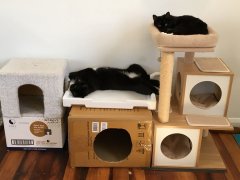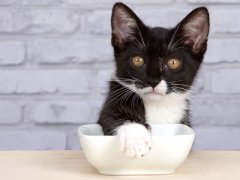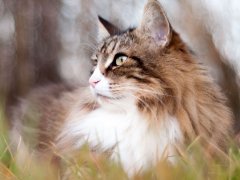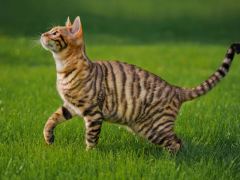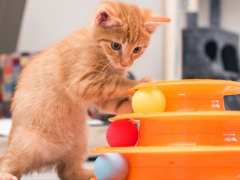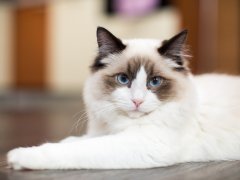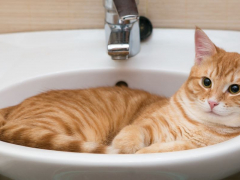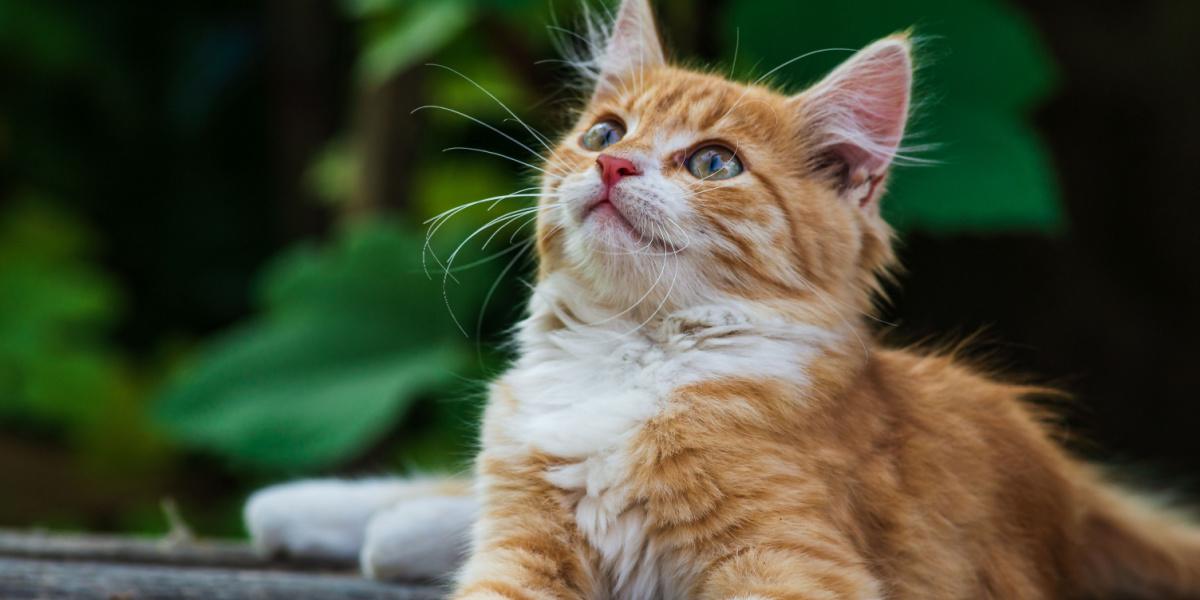
Living with feline family members brings a lot of joy to cat owners. However, it’s not always easy to understand a cat’s behavior. Normal cat body language is often quirky, making it difficult to work out whether your cat is doing something odd because they’re unwell, or just because they’re a cat!
Lip-smacking can be accompanied by dribbling, vomiting, or pawing at the mouth, along with other symptoms. Lip-smacking may be due to stress, fear, or irritation, rather than a medical problem. If your cat starts lip-smacking excessively, you should see a veterinarian.Key Takeaways
Lip-smacking is an example of one of those quirky feline behaviors. Like many cat behaviors, there are times when it’s perfectly normal, but then there are times that it could also be a symptom of various health issues and injuries. Let’s take a look at the possible reasons for your cat’s lip-smacking so you can determine if your cat needs to see a veterinarian.
Why Cats Smack Their Lips
Lip-smacking refers to when cats move their mouths, causing a smacking sound when their lips come together. While lip-smacking, your cat might also move and flick their tongue. You might also notice the tip of their tongue poking out in a rather cute-looking gesture known as ‘blepping.’
Here are some common reasons why your cat may be lip-smacking.
1. Pain
Often, cats smack their lips when they are in pain. This is their way of letting us know they don’t want to be approached for a fuss or a cuddle. However, if the pain is in their mouth, they might move their lips and tongue to try to find a comfortable position, which can produce extra saliva.
This drooling could cause them to move their lips more too. Causes of mouth pain include dental problems like tartar buildup, gingivitis, broken teeth, ulcers due to kidney disease, toxin ingestion, or stomatitis.
2. Irritation
If your cat isn’t feeling sociable, they might lip-smack to warn you off. You might notice them lip-smacking after petting them or picking them up. This is a sign that you’re doing something they don’t like, so it’s a good idea to stop and give them some space.
3. Fear
Just as your cat smacks their lips when they are upset, they might also do so if they’re feeling afraid or insecure. You might notice them hiding away or withdrawing, and if you try to follow or find them, you could certainly hear them smack their lips.
4. Hairballs
When your cat coughs up furballs, they might be smacking their lips because they have a hairball or some fur in their mouth after a grooming session.
5. Nausea
Nausea and vomiting are major causes of lip-smacking. Nausea can lead to excessive saliva production and dribbling. With all that saliva pooling in their mouths, they’re bound to move their lips more than normal. You can read more about nausea in cats by following the link.
6. Hypersalivation
Aside from nausea and mouth pain, excessive salivation can be caused by mouth tumors, bad teeth, or ingesting caustic substances.
7. Dreaming
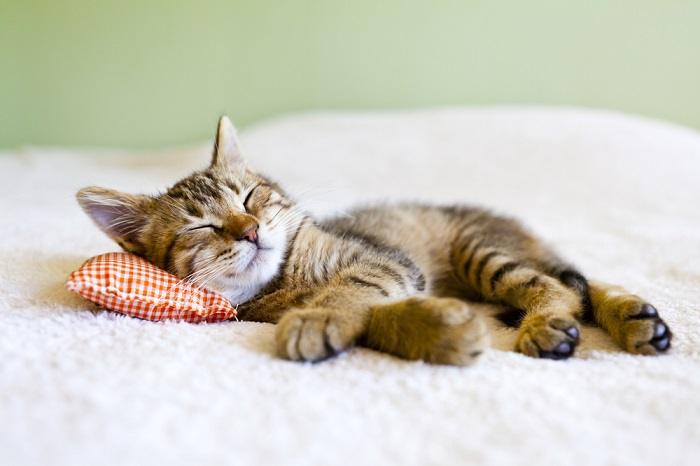
Just like your cat’s ears, paws or tail might twitch when they’re snoozing, you might also notice them smacking their lips. This could mean that they’re dreaming, or that they’re trying to get more comfortable and relaxed.
8. Hunger
When cats see food or think about food, they might dribble a bit. This is the same as when we feel our mouth start to water when we imagine eating a tasty snack. So, if it’s dinnertime and your cat smacks their lips, it might be because they’re hungry!
9. Thirst
If your pet is thirsty or has a dry mouth, you might notice them smacking their lips or moving their tongue. You could try offering them some fresh water, especially if they’re not drinking as much as usual.
10. Foreign Body
If your cat has a grass blade, fishing line, or other object lodged in their mouth or at the back of their throat, you might notice them moving their lips and tongue a lot. Gulping and retching are also common.
Also Read: Pica In Cats: Causes, Symptoms, & Treatment
Other Symptoms Associated With Lip-Smacking
In some circumstances, your cat might show other symptoms alongside smacking their lips. These symptoms could give you clues about what’s going on.
1. Lip-Smacking Due to Pain
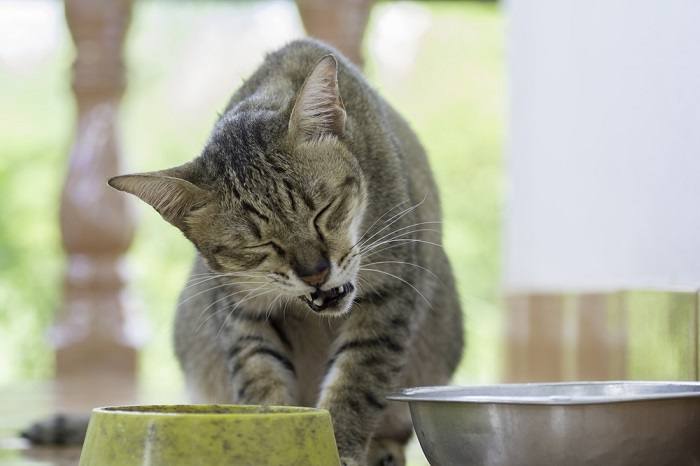
A cat showing signs of being in pain should always be taken seriously.
If your cat is lip-smacking due to pain in their mouth, you will likely notice them dropping food when they eat or turning their nose up at food altogether. They might paw at their mouth or dribble, and you might notice some blood or an unpleasant smell. If this is the case, it could be a sign of dental disease. It is best to see your veterinarian.
If the pain isn’t in their mouth, but elsewhere, your cat might be limping or hunched, depending on where the pain is. They might vocalize or you might see them licking their sore spots. Check out 12 warning signs your cat is in pain.
2. Lip-Smacking Due to Nausea
If nausea is the cause of your cat’s lip-smacking, they may show other signs of an upset tummy, like vomiting and diarrhea. They might not be interested in eating or drinking, and be lethargic. Read about what you can give your cat for an upset stomach.
3. Lip-Smacking Due to Fear or Irritation
When cats smack their lips because they are unhappy or afraid, they might growl or hiss. They might even lash out with their claws or give you a quick nip to let you know that they want to be left alone. In some situations, lip-smacking is your cat’s way of saying ‘stop’.
What You Should Do if Your Cat Keeps Lip-Smacking
Cats smack their lips for lots of reasons, but if they suddenly start to noticeably lip-smack more often, it’s worth trying to work out why. If the cause isn’t clear, or your cat seems unwell, or is experiencing a loss of appetite, it’s always best to take them to the vet for a checkup.
Underlying medical causes could include oral ulcers, renal failure, or an oral infection. However, if you’ve noticed the behavior more since your newly mobile toddler discovered chasing the cat, or since you brought a new pet home, it’s more likely to be a sign that your cat is feeling irritated or afraid due to the change in their environment.
Of course, it’s still important to work to make life more comfortable for your cat, even if the cause is behavioral. If you’re struggling with a stressed and anxious cat, or if your cat is showing other behavioral problems, contact a veterinary behaviorist for help and advice.
Summary
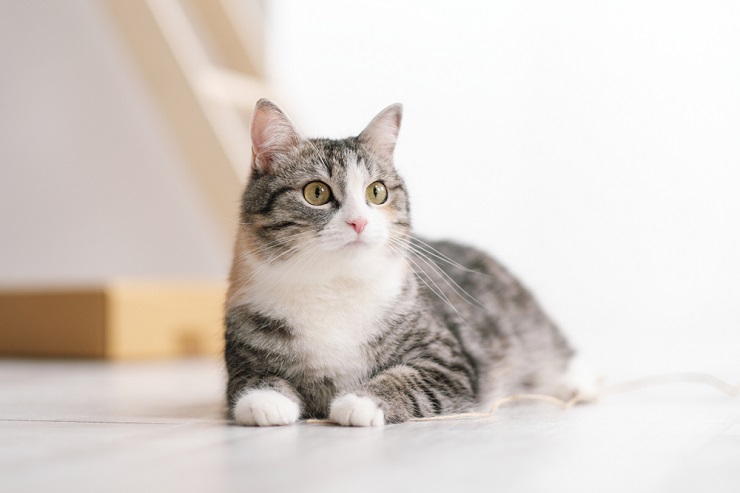
Even if your cat is lip-smacking is behavioral and medical in nature, it’s important to make sure you cat is happy and comfortable.
It might be tricky to decide why your cat is lip-smacking, but if it’s something new for them it’s not a good idea to ignore it. Look out for other symptoms and book a veterinarian appointment to make sure your cat isn’t in pain or feeling unwell.
Also Read: Can I Adopt Cats from The Same Litter? A Vet Explains
Frequently Asked Questions
Why do cats smack mouths?
Cats might smack their mouth or lips because they are feeling grumpy or frustrated, unwell, or in pain. If the cause isn't clear or you're worried that your kitty is unwell, speak to a veterinarian.
Why does my cat smack his lips when he sleeps?
Cats twitch their lips when they sleep, especially if they’re dreaming. They might also swallow and open and close their mouth as they're getting comfortable and ready for a snooze.
Why does my cat lick his lips when he looks at me?
If your cat is hungry, they might lick their lips and look at you, especially if you’re the feeder of the family. On the other hand, if your cat is swishing their tail or they run away when you tried to pick them up, they might be lip-smacking to tell you to leave them alone.
Why does my cat make weird noises with her mouth?
Cats can make lots of noises with their mouths, from meowing and purring to growling and hissing. But if you notice them smacking their lips, especially if they are dribbling or have other symptoms, contact a veterinarian for advice.

